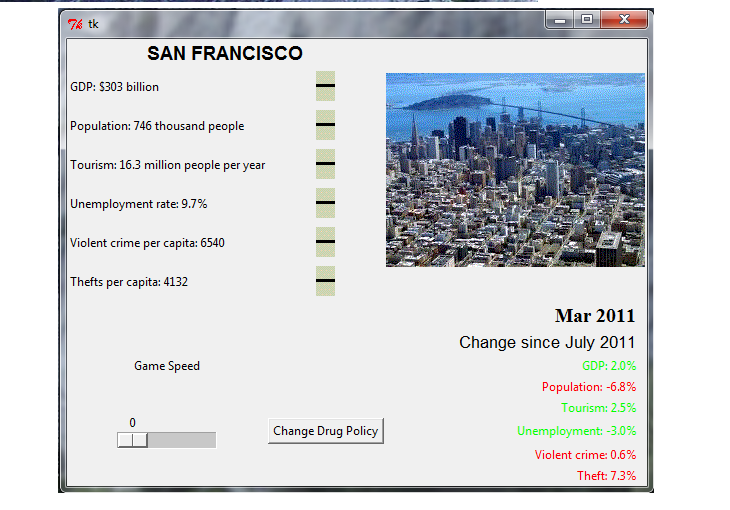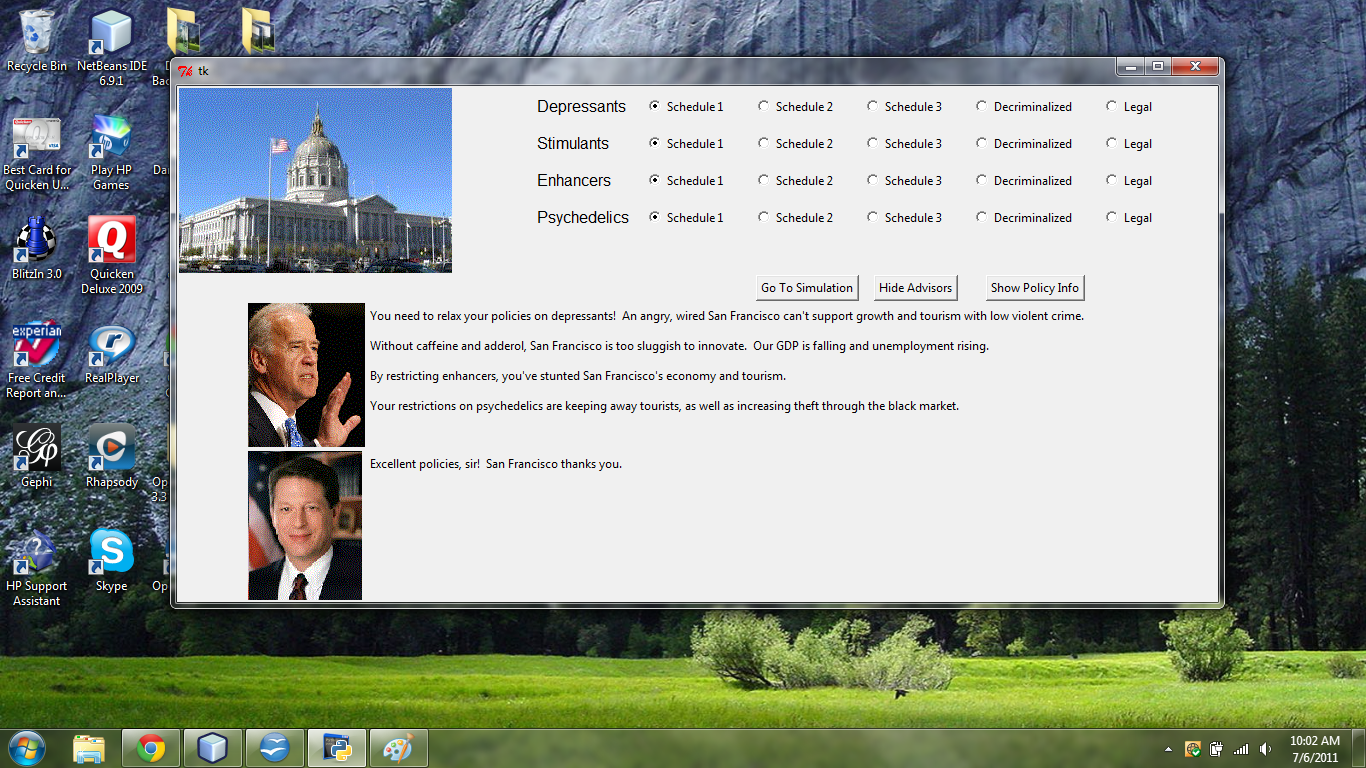Future Now
The IFTF Blog
Envisioning the Future of Drugs in San Francisco
This past week we interns each built a prototype for a game to engage with the future. We considered this task to be a smaller version of the final project that is the culmination of this internship. Since we had but five days to design and complete our prototype, it was a challenge to identify a problem of the appropriate size. My "play-space" shrunk from neural enhancement to chemical neural enhancement to chemical neural enhancement policy.

The result, as you can see in the picture, is a game called DrugCiv that operates on a simulation of the future of San Francisco. The game tracks SF's GDP, population, tourism rates, unemployment, violent crime, and theft. These variables follow a discrete Markov model in which the update function is normal Gaussian variance augmented or detrimented by the player's drug policy. This policy (that the player modifies in a screen not shown above) is the choice of legality of each of the following classes of drugs: depressants, stimulants, enhancers, and psychadelics. For each category, the player chooses schedule 1, schedule 2, schedule 3, decriminalized, or legal. The player may change these policies at any time. There is also a screen where advisors, portrayed as vice presidents, offer criticism of the policy and explain which policies are hurting San Francisco's GDP, population, etc. This advise reflects the actual coefficients in the Markov model. The players watch the statistics change, represented by both arrows that reflect the current trends and the total gain or loss of each economic quantity since the beginning of the game. As they learn how the policies affect the numbers, they nudge and update their policy to optimize the city. Beside choosing their ideal drug policy, the only other control the player has is in the game speed.

The point of the game is to serve as a sandbox for those interested in the economic effects of drug policies. Ideally, someone who has extensively played this game would no longer be able to maintain incoherent drug policies. By this, I mean that if a policy increased tourism, increased violent crime, and decreased GDP, the player would acknowledge all of these effects. Right now it seems to me that many people see drug policy as single-issue ("Legalizing cannabis would generate billions in tax revenue, therefore we should do it.") and ignore the complex interplay of tradeoffs.
The downside of the game in its current format is that my own views on the economic implications of drug policies are hard-coded into the game. For example, it is my belief that legalizing psychadelics would increase tourism in SF. Someone who disagrees with that opinion would likely be miffed at that feature - unless my game is clever enough to convince them that I'm right. In a better version of this game, the coefficients that drive the Markov model would be open to the players. As it is now, DrugCiv falls under the category of "persuasive gaming", where my goal is for players to accept my drug policy, i.e. the one that optimizes SF in the game, as the best drug policy.
The use of simulation gaming is on the rise. From topics as diverse as economic policy to combat training, the complexity of the tasks people must master is far too great for a textbook understanding. The best way to teach certain issues is to allow people to experiment and learn from their mistakes. I think this game highlights the potential for simulations to better inform voters and politicians about how their proposed policies would actually affect society.



